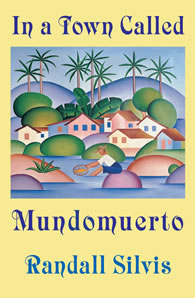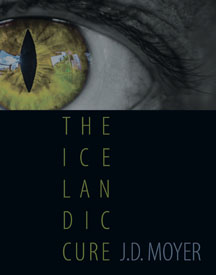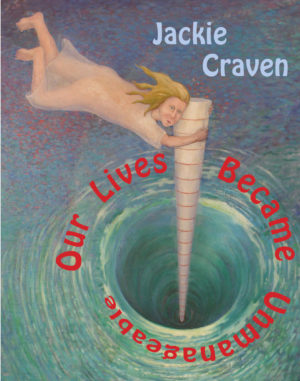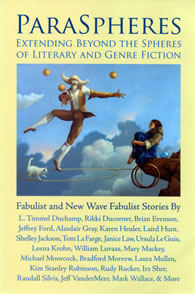Description
In this novel an old man is telling a boy the same story he has told him hundreds of times before, so that now the boy can correct him on his errors, omissions, and embellishments. It is a lyric story of bittersweet memories and the enduring power of a love the old man has felt since his boyhood for Lucia Luna, a once beautiful girl, now a bitter old woman, destroyed by the jealousy and superstition of her village.
Named one of SF Site Editors’ Choice Best SF and Fantasy Books of 2007
About the Author
Reviews
Excerpt
Randall Silvis is the author of 11 critically acclaimed novels, one collection of short stories, and one book of narrative nonfiction. His work has been nominated for the Pushcart Prize and the Frankfurt Book Award and was a finalist for the Hammet Award for Literary Excellence. He is a winner of two fellowships from the National Endowment for the Arts and the prestigious Drue Heinz Literature Prize. A novella, “The Indian,” is forthcoming in October in Houghton Mifflin Harcourt’s Best American Mystery Stories 2013.
His twelve stage plays have been produced across the United States and Off-off-Broadway, and have garnered three National Playwrights Showcase Awards, the Ruby Lloyd Apsey Playwriting Prize, and two Sadie Awards for Best Drama in Erie. His screenplay “An Occassional Hell,” starring Tom Berenger and Valeria Golina, premiered in 1996. He is the recipient of the 2003 Screenwriting Showcase Awards Grand Prize and a 2004 and 2008 Screenwriting Fellowship Award from the Pennsylvania Council On the Arts. His screenwriting blog can be found at VirtualPitchfest.com.
As genre readers, we’re used to books discussing superstitions, beliefs and mythologies, but A Town Called Mundomuerto shifts that focus to look almost exclusively at how those superstitions (held here by a group of villagers) affect other people’s lives, for better and for worse.
Storytelling becomes revisionist history. The story is a kind of machine that relies on the forward motion of the narrative for its power. “To stop is not a choice we have the right to make,” Alberto tells the boy. The story will go on, whether or not the teller wishes it to cease. Alberto’s tale is one of wonder, enchantment and a descriptive language so rich that the reader can nearly hear the strings’ pluck from the weather-beaten guitar.
Magical realism is a tough mode to bring off. Books in this vein can often sound twee or fey or forced or artificial. But the best magical realism exhibits a kind of reverence for the mysteries of life, illuminates the strangeness of the human condition, and entertains the reader with a tragicomic perspective. Randall Silvis fulfills this mission in his novel In a Town Called Mundomuerto.
I can’t recommend enough this book, an exceptional reading experience for anyone who loves solid and seductive storytelling, elegant but profound writing style, and most of all the ability to disclose the lyricism hidden behind the apparent triviality of human existence.
In a town called Mundomuerto there lives a woman who bore a dolphin’s child. She is an old woman now, la vieja, and most of the villagers dare glance at her only when she is looking the other way. But this is never difficult for she is always looking the other way, out to sea, where she watches for silvery fins to flash across the horizon like distant signal flags. Whether standing on the cliff’s edge or on the rocky shore below, the vieja waits there for one of the flags to turn ashore … for a handsome man dressed all in white to climb toward her over the patient rocks, his clothes miraculously dry by the time he reaches her, his fingertips kissing hers, “Will you dance with me, Lucia Luna?” A tall and graceful man with hips that move like water, his smile thin but sweet, his arm hooked around her back now, fingers caressing quivers into her spine, his left hand always atop his porkpie hat …
These days it is hard to believe that Lucia Luna was once a beauty. Her skin is darkly layered with years now, wrinkled with bitterness. Her hair is a tattered thundercloud that often wraps itself around the crag of her face. But there was a time, the grandfather says, when no man in town could keep his heart from dreaming of her. The town was called Mundosuave then, and rightfully so, for in those days it was a tender place, a small village on a wide escarpment overlooking a generous sea … a tiny world where, with hard work and kindness, life could be pleasant. But there is no one left to remember that time, there is only the grandfather and Lucia Luna herself. And because Lucia Luna will answer no questions except with a curse, a quick laceration of her jagged black eyes, it is left to the grandfather to tell the story. He tells it often, to anyone who will listen.
Now, after so many years, only the boy comes to request the story of how things came to be as they are. Each day the boy asks to hear the story again, because each time the tale unravels he catches a new thread of it or sees a new crease unfolding in the fabric. It is not a complicated story but as simple as the lives of the people who lived it, yet it holds a fascination for him, not unlike the fascination a child might feel when, with fear and curiosity, he tiptoes alone through the house of a stranger.
Still, the boy is fifteen now and there is not much child left in him. Some day he will not show up in the village square to ask for the grandfather’s story, and on that day the boy in him will be gone and maybe the story gone with it. This is what the grandfather fears.
The grandfather’s name, already forgotten in Mundomuerto, uttered now only by the tongues of his memory, had been Alberto when he was a boy. Years later he lost that name somehow, lost it like a handkerchief that falls from your pocket as you run too fast down an unmarked path. When you lose something in that manner you might try to retrieve it afterward but if you are not too dull you waste little time in this hopeless effort, you go on with your life nameless, trying on this name or that, but never again as certain of who you are as when you were young. Were it not for his story and the boy who comes to listen, the old man would be as much a shadow as Lucia Luna as she passes unnoticed through the villagers’ lives. But he is the grandfather for a while more at least, and in the late afternoon he sits on a broken chair in a corner of the clay-tiled square, gazing beyond the low stone wall that protects the plaza and its ghosts from tumbling into the sea. He sits in the gnarled shade of an acacia tree, a shade swept these days by nothing but the wind. Across his lap lays an old guitar, the veneer clouded and cracked, three strings missing. Behind him, the jungle has snaked its vines and branches onto the edge of the plaza, an encroachment which, like the dust and litter, goes unnoticed except by the grandfather, who likes to think that one of these days a vine will wrap itself around his ankles, and drag him, broken chair, tuneless guitar and all, back to that damp and shimmering place to which magic has retreated.





